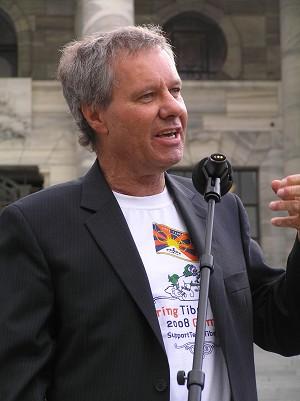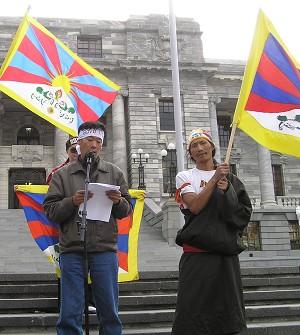New Zealand Tibetans are growing increasingly more concerned about their friends and family in Tibet as graphic images continue to flood from the troubled area.
In Wellington, around 300 people stood in solidarity with the Tibetan community at a rally on the parliament steps. They were calling for Government action to help the situation in Tibet and condemning the looming free trade deal with communist China.
Karma Tenzin, a local Tibetan, spoke about the crisis in Tibet reaching New Zealand.
“The brutal crackdown by the Chinese are affecting us here in New Zealand as we manage to get small pieces of information out of Tibet.”
He said a Christchurch-based Tibetan has been told that his cousin has been taken to a prison in Tibet’s capital city, Lhasa.
“It is likely he is being tortured there, right now,” Mr Tenzin said.
He added that a Tibetan in the north of New Zealand, managed to have a conversation with a family who are under house arrest in Lhasa.
“They talk about bodies and people being shot. One woman was shot dead as she tried to leave her house.”
A Tibetan on the West Coast has been told that at least eight bodies have been found in his monastery in the east of Tibet. He believes they could be his friends and family.
“A Tibetan in Wellington knows his monastery is under lockdown. He is hearing of more and more by nomads, monks, nuns, even remote places.”
“We have news from our friends in Australia too, of remote areas and villages being completely shut down. We heard that people are being shot. We have seen pictures of bodies.”
“Every Tibetan has a story like this. We lost our land. We lost our culture. We want to live as Tibetans in our own land. We are weeping, we are hurting, but we are also determined we will never give up.”
Green Party Foreign Affairs spokesperson Keith Locke spoke of the Chinese communist regime’s long repression over Tibet.
“All the efforts of a ruthless, one-party state that has dominated Tibet for about 50 years, all their efforts cannot stop the truth getting out in the end.”






